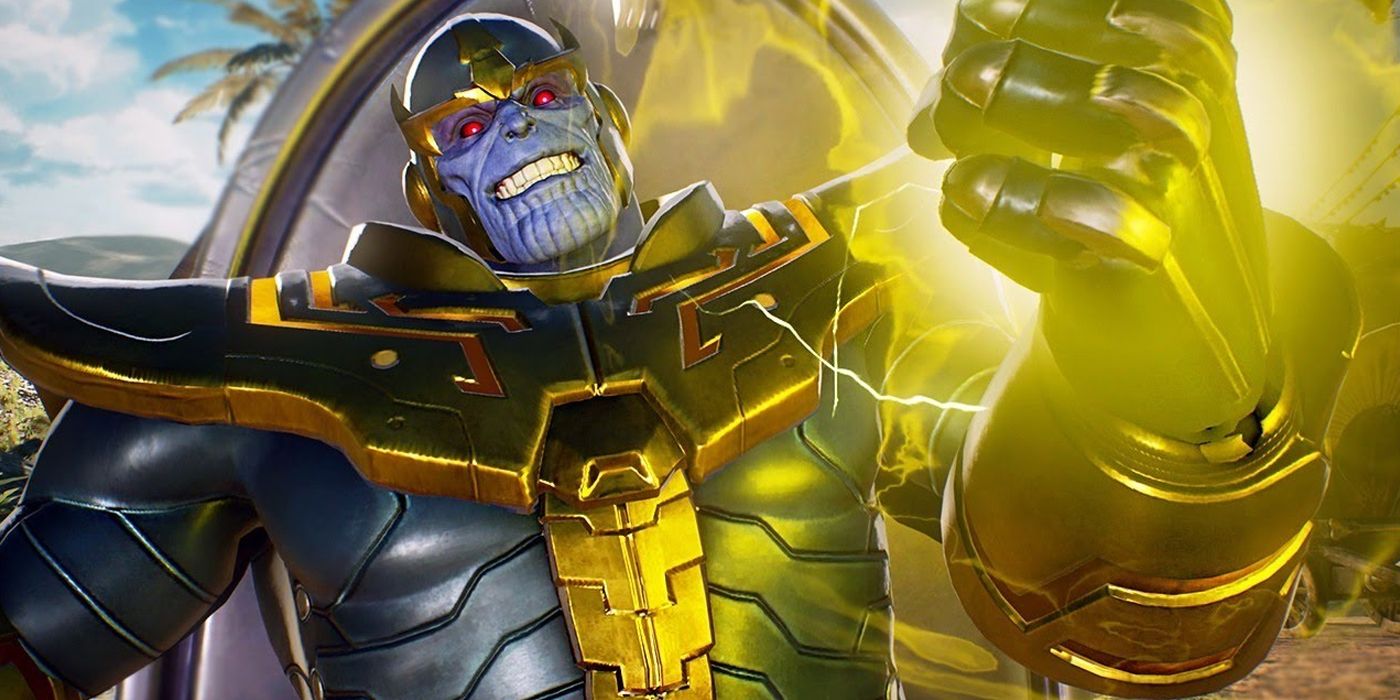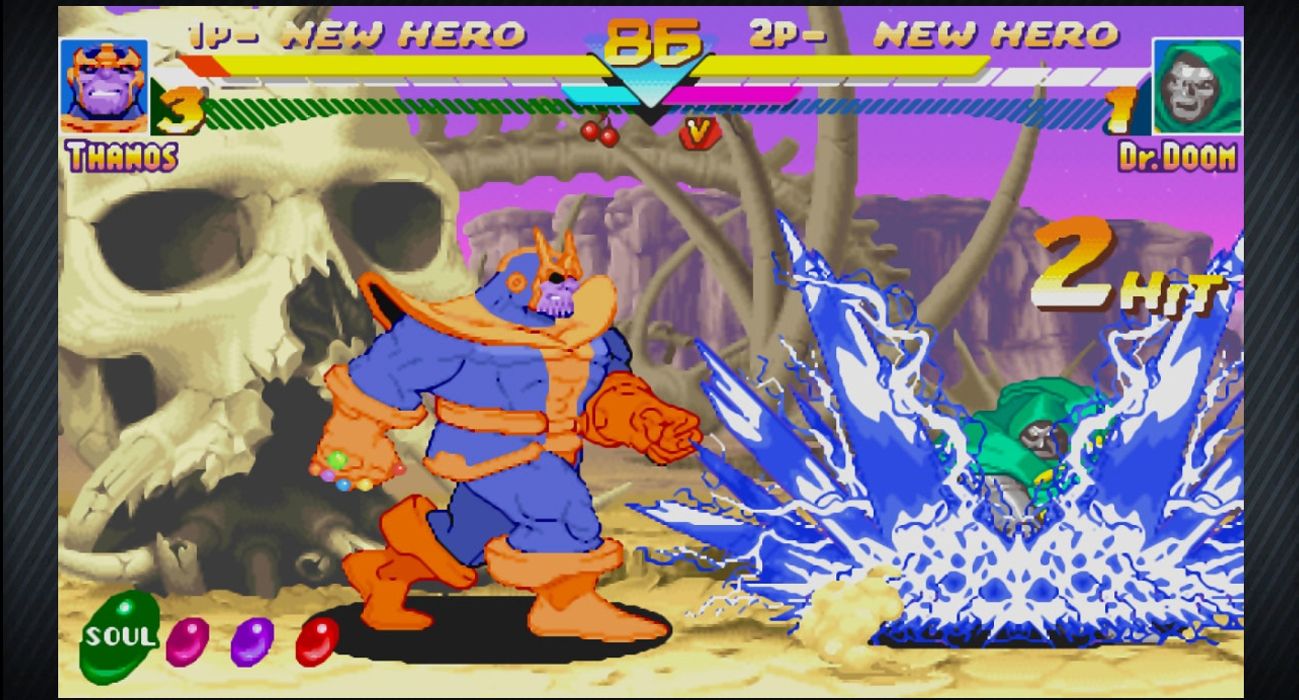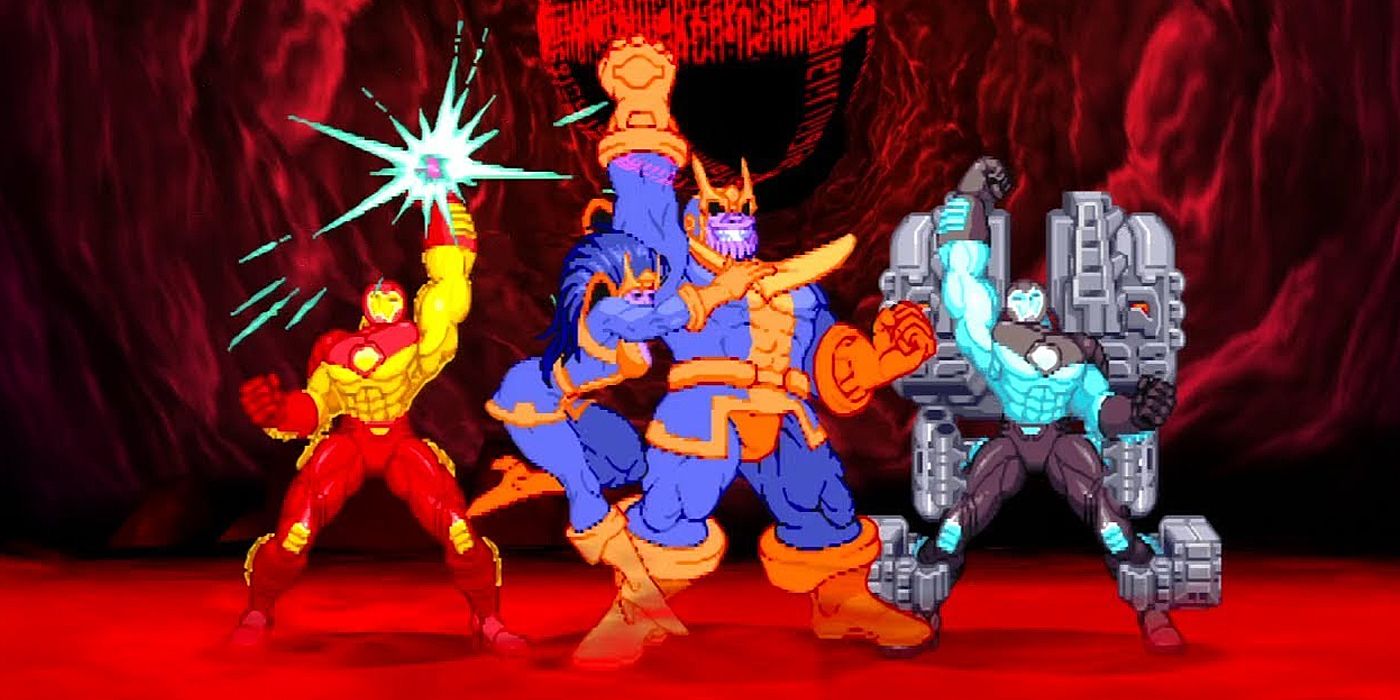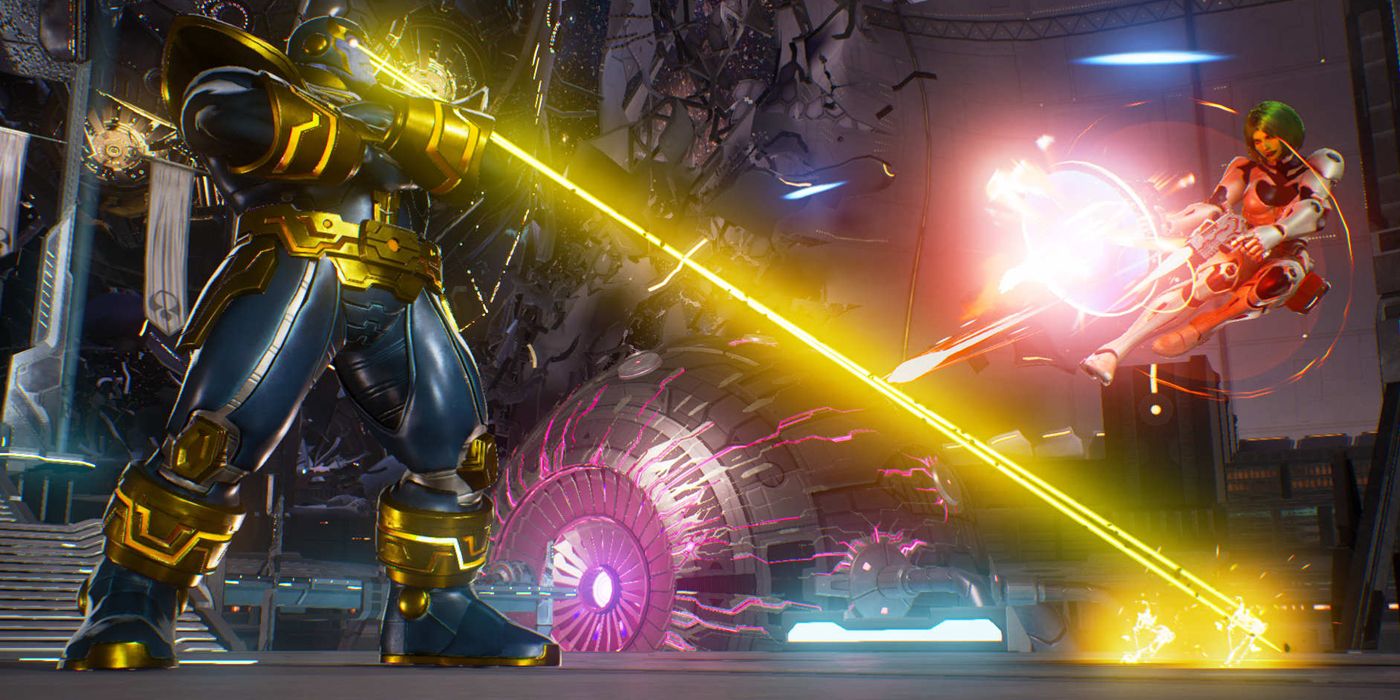In comics and film, Thanos is one of the most dangerous threats of the Marvel Universe. Thanks to the reality-reshaping power of the Infinity Gauntlet and the Infinity Stones that he often wields, the Mad Titan is one of the few beings who can take on the majority of Marvel's heroes at once and still have an advantage. To a point, the first decade of the Marvel Cinematic Universe was all about building up the threat of Thanos before showing how effective he can be in Avengers: Infinity War and Avengers: Endgame.
However, the MCU wasn't the first place outside of comics where Thanos flourished. Starting in the '90s, he was also one of the central villains in Capcom's fan-favorite series of Marvel video games. Now, CBR is taking a look back to see how Thanos became one of the biggest threats in Capcom's video game Marvel Universe.
Thanos in Marvel Super Heroes
After Street Fighter II revolutionized fighting games, Capcom's first fighting game with Marvel characters was X-Men: Children of the Atom in 1994. After that game was a critical and arcade smash, a follow-up title, 1995's Marvel Super Heroes, expanded its scope to include characters from around the Marvel Universe.
The game brought together several X-Men, Avengers, Spider-Man and some unexpected minor characters like the Doctor Strange villain Shuma-Gorath for the first time in gaming. After the then-recent success of 1991's The Infinity Gauntlet and its two follow-ups, 1992's The Infinity War and 1993's The Infinity Crusade, Thanos debuted as this game's final boss. While he was easily the most powerful fighter in the game, the title also featured Infinity Gems that any player could find and use in battle to create devastating combos.
Thanos in Marvel vs. Capcom 2
After playing a central role in the 1996 beat-em-up Marvel Super Heroes in War of the Gems, Thanos didn't appear in Capcom's next several Marvel games. However, he returned in 2000's Marvel vs. Capcom 2, which included a massive roster of 56 playable characters and featured three-on-three battles.
Since Thanos was just a regular member of this fighting game's cast, his strength and attacks were toned down considerably for this release. While he was arguably one of the title's weaker fighters, Thanos still wielded the Infinity Gauntlet in battle and used it in his special attacks. However, in sharp contrast to its usually formidable abilities, the Gauntlet was largely reduced to being used to shoot bubbles, non-descript energy bolts, rocks and other assorted debris at enemies.
Thanos in Marvel vs. Capcom Infinite
After sitting out both versions of the long-awaited third installment in the Marvel vs. Capcom series, Thanos returned to the franchise in 2017's Marvel vs. Capcom: Infinite. While the main villain of that game was an amalgamated villain named Ultron-Sigma, Thanos helped the gathered heroes of the Marvel and Capcom universes where to find the Infinity Stones that could keep Ultron-Sigma from wiping out all organic life. Unsurprisingly, he betrays the heroes, assembles his own Infinity Gauntlet and captures the power of Ryu's Satsui no Hado, a powerful form of dark energy, for himself.
Without the full power of the Infinity Gauntlet at his command, Thanos had an updated moveset in this game. Many of Thanos' special attacks rely more on his immense natural raw strength, although he still has a few attacks that rely on electrical blasts, shields and other forms of energy. His ultimate move in this game, Cosmic Fall, uses his blistering fast speed and his energy blasts to devastating effect. Like Marvel Super Heroes, this game featured the Infinity Stones as items that could be used in combat.
Although the game was greeted with a mixed critical reception, it was something of a commercial underperformer. While it's not clear if this game will fall into the Capcom tradition of updated re-releases or merit a sequel, Thanos will almost certainly continue to play a role in the fighting franchise's future.




